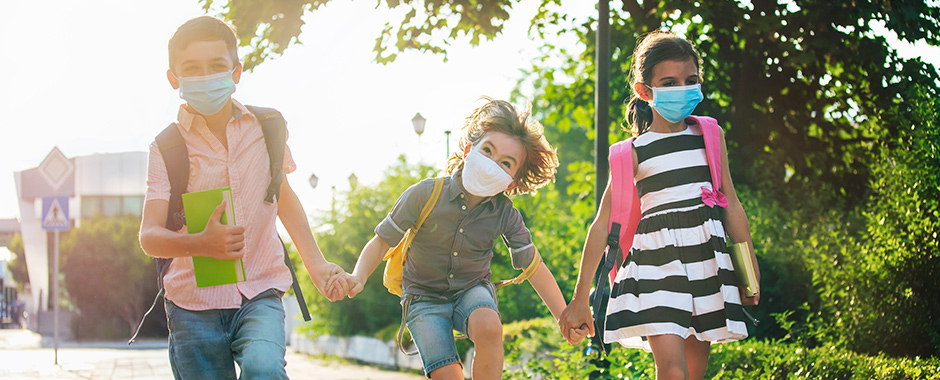The skills that are most critical for our children’s wellbeing right now have nothing to do with reading or math—they are social and emotional. Social-Emotional Learning (SEL, for short) includes abilities like maintaining supportive relationships, managing emotions, handling stress, gaining confidence, empathizing with others, and making responsible decisions.[1] These skills will help children be more resilient this school year, and they are essential for lifelong success at home, at work, and in the community. Research also demonstrates that when teachers promote SEL, the learning environment improves and higher academic achievement is the result.[2]
But how do we measure SEL and how well a school climate supports it? Last fall, California school districts issued online Learning from Home Surveys that collected data on students’ educational engagement and routines at home, their connectedness with teachers and classmates, and their social-emotional status. The survey touched on a wide variety of topics including how frequently children interacted with their teachers, whether they had caring relationships with school adults, and the quality and extent of their relationships with peers; as well as social-emotional competencies like self-awareness, self-efficacy, problem-solving, and gratitude. It also measured the prevalence of negative situations like cyberbullying, social-emotional distress, and sadness.
Now that California educators have a baseline for how well their students’ needs were addressed, we as parents and community members have a critical role to play in ensuring that schools turn this information into action. We can advocate to our children’s district and school leaders to invest time and resources into SEL, in addition to their focus on academics. The pressure will be strong to catch kids up on all of the learning they missed. But another type of learning, SEL, may be more important at this moment in time, and a necessary prerequisite. When education leaders tell you about their plans, see how they stack up against the recommendations contained in Roadmap for Reopening School (updated for 2021), a report from the national leaders on SEL—the Collaborative for Academic, Social, and Emotional Learning (CASEL).
And if you’re struggling with the challenge of helping your child (and yourself) manage this new emotional and academic landscape, our experts at the Center for Children & Youth are ready to support you with professional parent consultations, clinical services, and ongoing workshops and support groups. You can connect with us on our website, or call 1-888-927-0839. We’re here for you.
[1] https://casel.org/what-is-sel/
[2] https://restart-reinvent.learningpolicyinstitute.org/sites/default/files/product-files/Restart_Reinvent_Schools_COVID_REPORT.pdf



